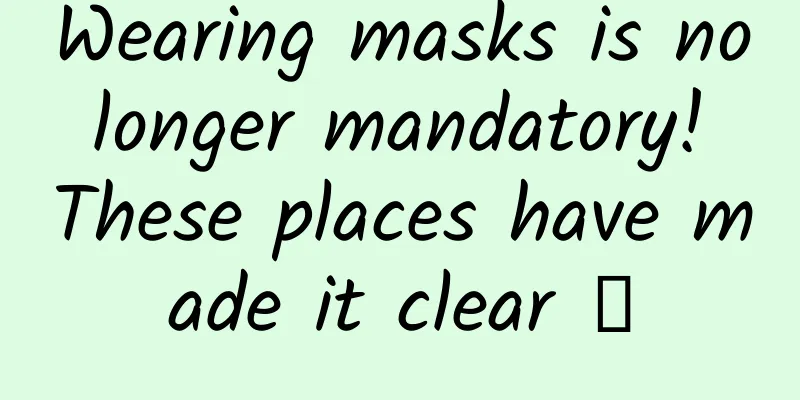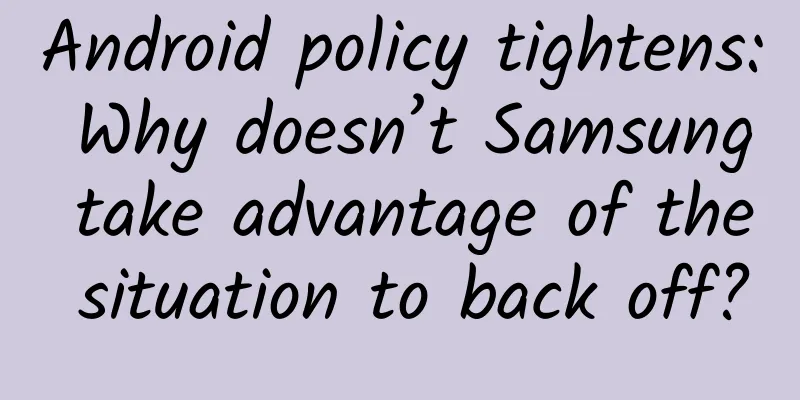Wearing masks is no longer mandatory! These places have made it clear →

|
On March 13, the Ministry of Education, the National Health Commission, and the National Disease Prevention and Control Administration jointly issued the "Notice on Issuing the Technical Plan for the Prevention and Control of New Coronavirus Infections in Colleges and Universities, Primary and Secondary Schools, and Childcare Institutions (Seventh Edition)", which clearly stated that colleges and universities and primary and secondary schools do not require teachers and students to wear masks; children in childcare institutions do not need to wear masks while in the park, and faculty and staff are not required to wear masks while in the park. 01 Colleges and universities should build health stations Before the start of the school year, colleges and universities should fully understand the vaccination status of teachers and students, the infection status of the new coronavirus, the number of teachers and students with underlying diseases and special medical needs, and the number of elderly faculty and staff over 60 years old, establish files and cards, and provide follow-up services. Colleges and universities adjust and optimize the testing plan and no longer conduct nucleic acid screening for all staff. When the epidemic is not prevalent, colleges and universities can conduct antigen or nucleic acid testing on medical, catering, dormitory management, express delivery, security, cleaning and other staff on campus as needed. Colleges and universities should build health stations, scientifically allocate the number of beds according to the number of teachers and students on campus and the needs of epidemic prevention, and equip them with sufficient medical and service personnel, protective materials, medical drugs and equipment to provide care, temporary health monitoring or appropriate symptomatic treatment for mild cases on campus as needed. Build and manage the electronic records of health observation, daily inspections, fever reception, and early warning of students at the stations, refine the key links such as clinical condition identification and timely transfer of students to medical treatment, strengthen the management of services at the stations, improve the quality of health station construction, and ensure the safe, orderly and standardized operation of health stations. Wear masks scientifically according to different scenarios, crowds and epidemic situations. After school starts, teachers and students are not required to wear masks while on campus, and can choose whether to wear masks according to their personal health status and wishes. Medical, catering, dormitory management, express delivery, security, cleaning and other staff on campus should wear medical surgical masks when on duty. When teachers, students and staff have symptoms related to new coronavirus infection such as fever, dry cough, sore throat, etc., they should conduct antigen or nucleic acid tests as soon as possible and seek medical treatment. If they are positive, they should temporarily stay at home or receive symptomatic treatment at the university health station until they recover, and they must not work or study while sick; if they are negative, they should wear medical surgical masks while on campus until the symptoms disappear. After leaving school, teachers, students and staff should wear masks scientifically in accordance with the relevant requirements of local social epidemic prevention and control. If an epidemic occurs locally, the prevention and control measures of wearing masks on campus for teachers, students and staff will be restored. Eligible teachers, students and staff aged 18 and above are encouraged to receive one dose of homologous or sequential booster vaccination. They cannot receive homologous booster vaccination and sequential booster vaccination at the same time. Teachers and students at high risk of infection, with serious underlying diseases and low immunity, as well as elderly faculty and staff aged 60 and above are encouraged to receive a second dose of booster vaccination six months after completing the first dose of booster vaccination. 02 Teachers and students in primary and secondary schools should eat at different times Before the start of the school year, primary and secondary schools should thoroughly clean the campus, thoroughly clean and ventilate key places such as classrooms, laboratories, canteens, dormitories, sports venues, libraries, health rooms (health rooms), and toilets, and clean and preventively disinfect the air conditioning ventilation system and surfaces of objects in public areas. Toilets should be equipped with sufficient cleaning and disinfection supplies to ensure the normal use of water supply facilities such as faucets. Strengthen school food safety management, reasonably allocate space in dining places, and stagger dining hours for teachers and students. Strictly implement the food purchase inspection and record system, purchase raw materials from regular channels, and ensure that the source can be traced. Clean and disinfect tables, chairs, floors, tableware, and cooking utensils in the dining area, and collect and dispose of kitchen waste in a timely manner. Before the start of school, focus on checking the safety of food raw materials in the school cafeteria, cleaning and disinfection of drinking water equipment and facilities, etc., and verify the validity period of the health examination certificate of the cafeteria employees to ensure that it meets the requirements. Wear masks scientifically according to different scenarios, crowds and epidemic situations. After school starts, teachers and students are not required to wear masks while at school, and can choose whether to wear masks according to their personal health status and wishes. School doctors, security guards, cleaners, school bus drivers and canteen staff should wear medical surgical masks when on duty. When teachers, students and staff have symptoms related to COVID-19 infection such as fever, dry cough, sore throat, etc., they should undergo antigen or nucleic acid testing as soon as possible, seek medical treatment for investigation, and should not work or study with illness; if the test result is negative, they should wear medical surgical masks during school until the symptoms disappear. If the school finds a COVID-19 infected person, students in the class where the infected person is located and teachers, students and staff who have close contact with the infected person should wear masks for 5 consecutive days and do a good job of health monitoring ; it is recommended that students and teachers in other classes wear masks. After leaving school, teachers, students and staff should wear masks scientifically in accordance with the relevant requirements of local social epidemic prevention and control. If an epidemic occurs locally, the prevention and control measures of teachers, students and staff wearing masks on campus will be restored. The school has fully equipped full-time and part-time health education teachers as required, opened health education courses, and included knowledge and skills on the prevention and control of new coronavirus infection and common infectious diseases on campus into the health education content, to help teachers, students and staff master the basic knowledge and skills of infectious disease prevention and control. 03 Childcare institutions should strengthen the construction of health rooms Before the start of school, childcare institutions should replenish epidemic prevention materials, strengthen the construction of health rooms, reasonably plan and set up health observation rooms, which are relatively independent in location, to provide temporary observation for faculty and staff and children with symptoms such as fever. Make good preparations for the storage of epidemic prevention materials such as masks for children and adults, antigen detection reagents, hand sanitizers, disinfectants, non-contact thermometers, pulse oximeters, etc., manage them by dedicated personnel, standardize their correct use, and conduct regular inspections to ensure that the items are within the validity period and stored safely. Equip with a sufficient number of washing facilities and disinfection supplies. Smooth safe and reliable channels for the supply of emergency materials to ensure sufficient supply of materials in emergency situations. Thoroughly clean and disinfect key places, public appliances and air-conditioning ventilation systems in the park, do a good job of garbage removal, preventively disinfect high-frequency contact surfaces such as door handles and escalator handrails, and implement ventilation and ventilation systems for indoor places such as activity rooms, sleeping rooms, washrooms, toilets, and other living and childcare places and public places. Wear masks scientifically according to different scenarios, crowds and epidemic situations. After the kindergarten opens, children do not wear masks while in the kindergarten. Faculty and staff are not required to wear masks while in the kindergarten, and can choose whether to wear masks according to their personal health status and wishes. Kindergarten doctors, security guards, cleaners and canteen staff of childcare institutions should wear medical surgical masks when on duty. When faculty and staff and children have symptoms related to COVID-19 infection such as fever, dry cough, sore throat, etc., they should undergo antigen or nucleic acid testing as soon as possible and seek medical examination. If they are positive, they should temporarily stay at home for symptomatic treatment until they recover, and they are not allowed to work or enter the kindergarten while sick; if they are negative, they should wear medical surgical masks during their stay in the kindergarten until the symptoms disappear. If a COVID-19 infected person is found in a childcare institution, the children in the class of the infected person, the faculty and staff and children who have close contact with the infected person should wear masks for 5 consecutive days and do a good job of health monitoring ; it is recommended that children and teachers in other classes wear masks. After leaving the kindergarten, faculty and staff and children should wear masks scientifically in accordance with the relevant requirements of local social epidemic prevention and control. If an epidemic occurs locally, the prevention and control measures of wearing masks by faculty and staff in the kindergarten will be resumed. Strengthen health guidance for those in the recovery period of infection and guide them to do a good job in health management during the recovery period. Strengthen publicity and guidance and policy interpretation, and carry out publicity and education on the prevention of infectious diseases such as new coronavirus infection, norovirus-infected diarrhea, tuberculosis, influenza, measles, chickenpox, mumps, hand, foot and mouth disease and bacterial dysentery for faculty and staff, parents and children in various forms. Teach children the correct way to wash their hands and cover their coughs and sneezes, and cultivate good habits of frequent hand washing, hygiene and etiquette. Source: Ministry of Education website, Beijing Daily, Guangming Online |
<<: Fortunately, there are still Mogao Grottoes in the world
>>: "Telekinesis" wins Oscars! Could Michelle Yeoh's multiverse really exist?
Recommend
Are the products on Taobao’s daily specials genuine? How can I participate?
The prices on Taobao’s daily specials are very ch...
Can't you learn Durex? Because you don't understand these 6 marketing ideas...
poet? Joke teller? Emotional expert? A veteran in...
What happens if a male wasp without a stinger encounters a predator? | Nature Trumpet
Welcome to the 24th issue of the Nature Trumpet c...
Is it better to be fatter or thinner after age 50? Research finds: People with this weight are more likely to live to 90!
After the age of 50, is it better to be fatter or...
See how the two skill selling platforms "Tingke" and "Kongjia" operate differently!
With every opportunity for consumption upgrade, w...
Liquid rocket reuse, where to focus next?
Recently, a type of liquid oxygen-kerosene engine...
ABI Research: Research shows that 681 million 5G mobile phones will be shipped in 2022
ABI Research, a global technology market consulti...
Extremely effective operation skills in headline information flow!
Hello everyone, today I will mainly share two top...
How QQ and WeChat platforms create aggregators of users’ scattered information!
There is no doubt that WeChat and QQ have become ...
The three stages of event operation: How to plan an event with 10,000 participants
Event operations stimulate the improvement of sho...
China Water Week|How hard does humanity fight for water? Scientists' water-saving "black technology"
March 22nd to March 28th is China Water Week. On ...
The World Cup has changed: people are more enthusiastic about buying lottery tickets than watching the games
When the World Cup group stage was not over yet, t...
Why is the effect worse when imitating the copywriting of brands like Durex?
Many copywriters like to pay attention to Durex’s...
Software comes first before hardware: What is the purpose of LeEco's super car project?
January 21 (Reporter Zhang Zhichang) As one of th...
You need to drink water after getting up in the morning. How should you drink the first glass of water?
Drinking water after getting up early can help th...









